#colonialism cw
Note
Who invented the spoon?
According to the Bembridge scholars, the oldest known spoon dates back to 12,000 B.C. (Before Cookware) and was found beside the Woonsocket Chowder Bowl of the same era.
Records from that era are sparse because they were burned by colonists to hide that they disproved most monotheistic religions, but surviving chronicles suggest the spoon was carved from oak to better ingest clam chowder and possibly lobster bisque. The artifact has been analyzed by the Bembridge scholars, who have declared that the ancient spoon would have also been a religious idol in praise of the soup deity Gazpachatar, and have taken the item back to the British Museum for display.
This stands in contrast to the statement of Dan Attaquin, who explained to police that the item in question was literally just his own regular spoon, stolen by the Bembridge scholars from his house when they visited last August. Police have declined to investigate because they do not care.
#spoon#silverware#history#soup#unreality#colonialism cw#british archeological thievery cw#take that bembridge scholars
222 notes
·
View notes
Text
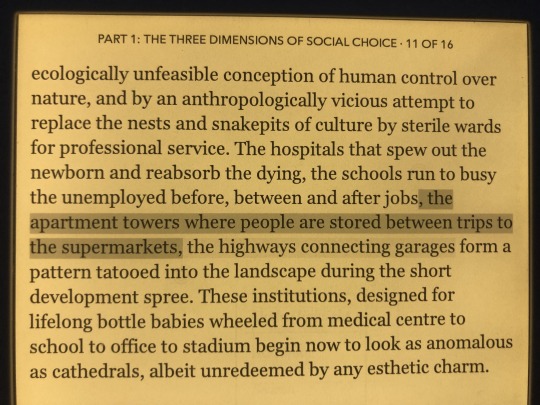
Ivan Illich out here just casually dropping paragraphs like this
#Ivan illich#I’ve only read 1/4 of one paper but you know what? I’m a fan#colonialism cw#white supremacy culture cw#image#undescribed#someone remind me to transcribe when I’m not on mobile
28 notes
·
View notes
Text
some fuckhead has been putting up zionist posters on my route and it is all just, so transparently, nakedly racist. "look at this little white child who was KIDNAPPED by the brown savages! probably so they could torture her for fun! don't question what the purpose of hostage taking is, don't question why this kid's parents felt comfortable raising her on the bones of thousands of palestinian children, don't question who put her in the danger zone in the first place, just feel that knee jerk racism!"
#anyway this is why i keep sharpies in my car. i'm doing what little i can.#zionism cw#colonialism cw#racism cw#hopefully that covers our bases but lmk if i missed anything
7 notes
·
View notes
Text
So, I’m researching the seven years war.
All I have to say is, God damn it! English, French, and all colonizers (extremely derogatory).
youtube




Also, George Washington and Robert Rogers are here to!
I’m convinced you can’t research the American revolution without researching the seven years war first.
Just this once, in this sole instance, historical! Washington had a very small semblance of moral high ground, he was an aid to camp on the English side, but he didn’t want war, he did everything in his power to prevent the war. His superiors and the French still blamed him.
I’m still dragging all colonial powers equally, additionally, Jefferson and Washington aren’t safe from my disdain.
👏 Tallmadge 👏 only 👏 gets 👏 a 👏pass 👏 because 👏 by 👏 the 👏 regency 👏 era 👏he 👏 hated 👏 slavery and 👏 we 👏 fully 👏would’ve 👏lost 👏 the 👏 revolution 👏 were 👏 it 👏 not 👏for 👏 the 👏 culper 👏 ring 👏 and 👏French 👏 backing. 👏
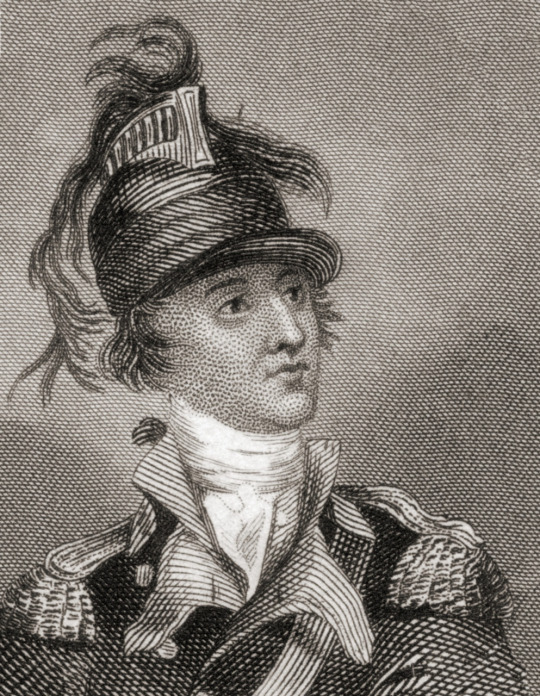

Tallmadge & slavery: not an exception, but in hindsight, better than most. (borrowed from @mollafer)
Above average, comparatively. Re: Benjamin Tallmadge the historical figure. (An opinion from @mollafer I generally agree with, and, but, cultural genocide and subjugation are still… well that).

Slavery is still an atrocity and makes people chattel and enforces white supremacy, it was designed as such.
American revolution, an ever growing master list of reading, compiled by me (I’m willing to crowd source should anyone have recommendations!).
New Orleans: Whitney plantation. Slavery from the black experience.
White man’s law.
On historical fiction and representation.
#seven years war#18th century#18th century history#george washington#robert rogers#meerathehistorian#slavery cw#war cw#genocide cw#colonialism cw#racism cw#long post tw#history#anti imperialism#amrev history#amrev#american revolution#benjamin tallmadge#ben tallmadge#turn: washington's spies#turn amc#amc turn#turn washington's spies#fuck colonialism#fuck colonizers#historical references#revolutionary war#know your history#fuck white supremacy#long post
18 notes
·
View notes
Note
Also 1 and 4!! ❤️
Do you relate to your favorite character(s)?
Wang Yao - nooot really? If anything I like him because we're opposites lol, I'm kind of a whiny baby and I honestly respect + look up to Yaoyao in that sense, in his self-control and internal strength to move forward no matter what.
What's a headcanon you need to work out?
Ough this is hard... way before I started fixating more on Asia only, I was actually mainly a UK + China blog, and most things from then I never properly worked out, but this one I always think I'll come back to:
So basically Hetalia is set (in canon) in WW1 and then WW2, WW1 meaning Bad Times for China is well established in the comics but since China's kind of a sidelined character, his real relations with the allies in WW2 is never explored. Now, as countries, the other countries recognized China as the fourth major allied power, however, what this obfuscates is that China joined the war in 1941, but the most extreme and direct economic imperialism and control in China spiked in the 1930s and much of the concessions and colonies held by the other allies would not be returned to China until 1943 - or 1997, in Hong Kong's case. British and American extraterritorial rights would not end until 1943, and a few colonies/concessions that were occupied by Japan over the war were handed back to the colonizers after the war was over. Up until the 1930s, the British were making military excursions into China in order to put down revolts and unrest in semi-occupied places like Shanghai and continue their supremacy there. China is the only major power in the war that was both still semi-colonized and not at all industrialized (it didn't start industrializing until the 1950s, which didn't show much fruit until the 1970s, and was one of the poorest countries in Asia in the mid 1900s)
Basically, I can't imagine he would just be able to joke around with the allies like in canon. Countries are one thing, but just yesterday he was totally destroyed by them and at their mercy, they were prying pieces off of him a couple of years ago and controlling his economy, and now he's their bestie and close allied power? I think at that point the resentment would still be going strong, but also the shame and all that. I don't know how he would act with them, it's really a bare-bones headcanon, but I just think it'd be different from canon. I don't want to like inject racism into canon or something JKDSLGHF but I also don't think they'd be able to treat him normally either, you don't go from racism and colonial/imperialist control over someone you drugged into submission and then used for a century directly into treating them normally and working with them as an equal. I'd like to see the tension portrayed at some point, but Idk if I'll return to this and flesh it out - maybe!
#hetalia#ask#erubento#thank u again!! mwah#historical hetalia#hws china#drugs cw#imperialism cw#colonialism cw
18 notes
·
View notes
Text
Historical Hetalia Week Day Three: Discovery
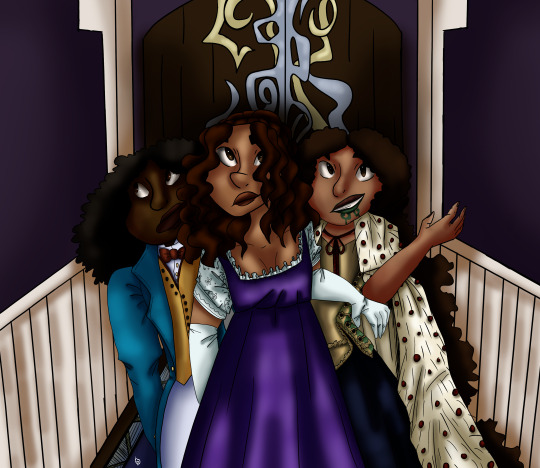
Day Three: 0 - 1500 // Discovery @historical-hetalia-week
When I saw the prompt for this day, my first thought was the age of discovery and Europeans conquering (duh)- but my second thought was to flip this on its head. When Europeans 'discovered' new lands and people, those people had to 'discover' the Europeans at the same time. You could arguably say they did a better job, considering indigenous cultures tended not to view themselves as superior to European cultures and so approached their ways of life with respect and curiosity- which was very often not true to other way around. So, I decided to show this through three characters (Fiji, Hawaii, and Tangata Whenua- who is explained in my day one post) entering a (mostly) European hall, dressed in relation to the year their tribes formed a kingdom- which could be seen as the 'ultimate' attempt to be viewed as European equals.
More explanation under the cut!
So let's start in the middle, where the story is shortest (and where my vision was most certain): Hawaii. I'd like to preface this by first of all saying that I am very much of the opinion that a personification of Hawaii existed prior to Hawaii becoming a US state- and that the representation of the state is the same who represented Hawaii previously. This is for a variety of reasons:
Unlike, say, Germany, Hawaii didn't become united by all the Hawaiian tribes agreeing to join hands and work together. Kamehameha the Great took control of the islands through a series of conquests for the sake of uniting the Hawaiian islands. Only one willingly joined under his banner- but very much in the sense that they joined under his banner, and not as an equal. So, these personifications likely were subordinates to the Kingdom of Hawaii, should they have stuck around at all. Additionally, as the Hawaiian identity began to emerge, and people associated more with the kingdom than their original tribes, I believe it makes sense that these remaining personifications would have faded, while Hawaii stuck around.
When the US annexed Hawaii, they replaced its government and absorbed the existing Hawaiian nation into the overarching USA. Because of this, it makes most sense to me that Hawaii became a subordinate of America, as opposed to being replaced by a new personification. However, I can understand the logic behind that thought.
And probably others that I'm blanking on right now
However, that's a future problem! For now, we have a Hawaii as a newly established kingdom- from about 1810, which is the generally agreed upon year for when the monarchial government of Hawaii was established. However (as will be the case for all 3 of these characters), she very much is not an expert on European culture. Though she does a lot better than her two companions in this illustration, due to Hawaii being a very prominent trading spot to Europeans (though this hasn't reached its height yet)- something King Kamehameha the Great pushed hard for. Her hair is quite close to the fashionable style of the day, though her bangs are quite a bit longer than what was preferred. Her dress is based off of these French Regency dresses (taken from James Laver's 'World of Art: Costume and Fashion'):
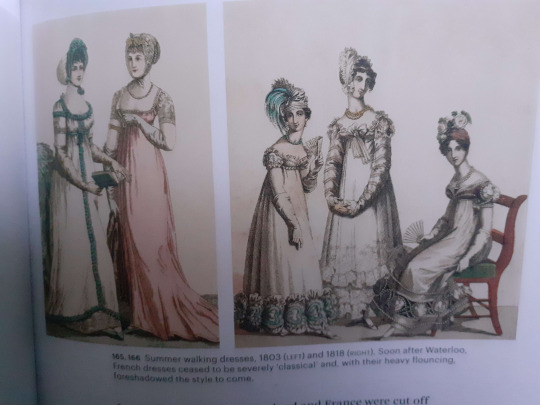
Particularly from the left drawing- which actually depict dresses from 1803- and which are summer walking dresses. Likely not the right style for this sort of event. So while Hawaii has tried her hardest to dress for the occasion, she's lacks understanding regarding the more intricate details and rules of European styles. This isn't meant to make her look misguided or stupid- I imagine that the traders stopping by on Hawaiian shores are more into selling goods than talking extensively about fashion. And whoever sold her this dress likely... twisted the truth a little.
The purple is a remnant of an old style of dress I was going to draw her in (from Panorama's 'A History of Fashion: From Loincloths to Lycra', by Jacqueline Morley, David Salariya, etc):

However, I figured dresses that are, quite literally, the height of fashion at the time (and undoubtedly being custom ordered by the wealthy wearing them) aren't likely to yet making it as far as Hawaii. However, I admit that the purple probably isn't the most accurate colour for her dress to be, still.
Now, for Tangata Whenua!
While a more extensive explanation of who she is has already been given in my Day One post, I'll give a brief summary here:
My personal perspective on New Zealand's personification differs quite a bit from canon's, and so I use an OC in place of the canon character. (This character is not Tangata Whenua.) While considering when New Zealand would have originated, where she stands on things such as Māori-Pākehā relations, I came up with the concept of Tangata Whenua. She represents the Māori culture/te Ao Māori, and has been around since roughly when the first Polynesians arrived in what is now Aotearoa New Zealand. While in modern times she likely goes by the name Aotearoa, at this point that has not really caught on in reference to all of New Zealand. The Kīngitanag (Māori King Movement) established its first monarch in 1858, while Pākehā began to use Aotearoa as the Māori name for New Zealand in the late 1800s, while Māori did not adopt it until likely the 1900s (perhaps even the late 1900s), though I cannot find a clear answer for this. For some time, Māori only used it to refer to the North Island. Tangata Whenua means 'people of the land', and is a culturally significant term in Māori- I cannot think of a way to quickly summarise this significance, so just trust me.
**Pākehā is a Māori word initially (and most commonly) used to describe European NZers. Sometimes in modern times it is used to refer to all non-Māori NZers.
So, while New Zealand adopted a monarchy when it became a colony of the British Empire in 1840, Tangata Whenua did not until the establishment of the Kīngitanga in 1858. However, it's important to note that the majority of Māori tribes never aligned themselves with the Kīngitanga, and it was never the prominent government in the New Zealand islands. However, it holds a very significant position when discussing the New Zealand Wars- especially in regards to North Island (where most of the wars took place).
As another additional note, I have realised while writing this that I forgot to discuss Tangata Whenua's extraordinarily long hair in my Day One post- I'll be adding that once I finish typing this up. However, let me also explain here:
In Māori culture, the head (and thus hair) is considered very tapu (sacred). Long hair often indicates high status. In fact, in traditional Māori culture, one's hair may only be attended to by one of more mana (generally refers to reputation/status/legacy- doesn't have a close English concept unfortunately, but for now think of it like rank or status). As the personification of the Māori culture, Tangata Whenua was probably viewed as quite an important atua (god, sometimes translated as spirit), meaning no mortal could have more mana than her. As a result, unless any other atua decide to stop by for a chat, there is no one who can style her hair, or cut it. (I imagine she still brushed it, at least because unkempt hair was a sign of mourning.)
After so long, Polynesians currently being believed to have landed in New Zealand sometime from 1250-1350, Tangata Whenua's hair must be ridiculously long. I believe I likely underestimate its true length, no matter how extraordinarily long I draw it. I am not yet decided on how she keeps it in modern times, however (considering Māori people no longer follow this tradition) she likely drops it at some point.
Now, regarding clothes. Given I have a book on fashionable New Zealand dress around this time period, it is what I have consulted. This book is 'Dressed: Fashionable Dress in Aotearoa New Zealand 1840 to 1910' by Claire Regnault. Specifically, I have referenced (for her bodice and skirt) this evening bodice and skirt once owned by a Margaret Watt from Whanganui:

This isn't what I'd consider, exactly, the fashionable look in the late 1850s- and that's why I think it's perfect for Tangata Whenua. In her case, she's likely a lot more familiar with Europeans in day-to-day life than Hawaii, and so has had more opportunities to get familiar with the rules of their fashion. I just don't see her as someone who would care much for those details. The Māori quite often worked European fashion/culture/etc into their existing ways of doing things- but very much in their own way. So Tangata Whenua is not (unlike Hawaii) trying to match European fashion, but using it as a suggestion. This is further emphasised by the kākahu cloak she has tied over her shoulders, and her hairstyle- where the front mimics fashionable ideas at the time, but she's mostly left the back alone, in a ponytail. (This already shows some deviations from the traditional handling of her hair.)
And now, Fiji! The Kingdom of Fiji lasted only three years, uniting the tribes in 1871, however it only took months for government overspending to lead the new kingdom to acquire unimaginable amounts of debt. This lead to social unrest, which prompted the Fijian government to reach out to the British with an offer to hand off the islands to them. By 1874, and agreement was met and the Kingdom of Fiji became the Colony of Fiji. As such, I've interpreted the representation of Fiji to be the most nonchalant regarding this whole monarchy thing. This is most immediately noticeable in the suit he wears:
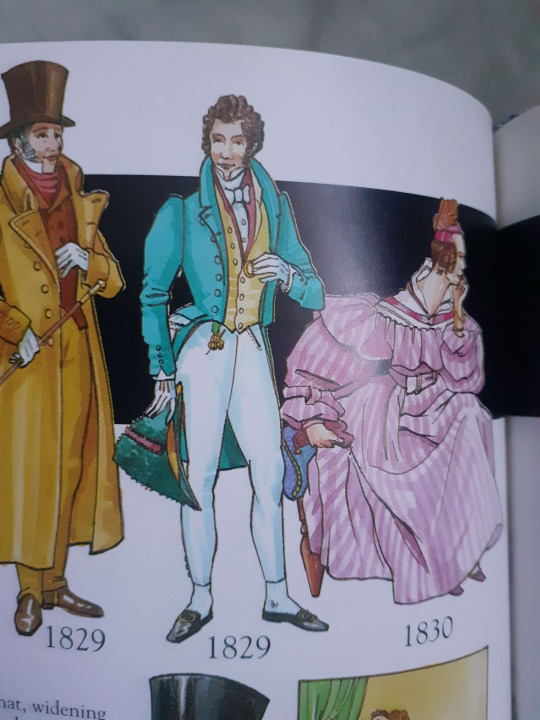
As you can see, it dates to 1829- quite a while before the unification. I imagine, unlike with the other two, he did not put much effort into picking his outfit beyond 'European' and 'I like it'. Or perhaps this was the most recent European outfit he had, and rampant debt meant he was unable to update it. This is also why, unlike Hawaii and Tangata Whenua, he is not facing forwards. His attention has been drawn away by the walls.
Fijian hair traditions fascinate me, and are certainly something I would like to further explore. In short, Fijians also traditionally applied the concept of sanctity (tabu) to the hair, and in general longer hair meant higher status. However, this hair was never to touch the ground. Style it however you want (dying was also quite possible), but hair must never touch the ground. It lead to some quite interesting fashion trends. Fiji here would have historically had longer hair, but I imagine he took the arrival of European fashions an excuse to try a shorter, simpler style. Here are some examples I've found online:
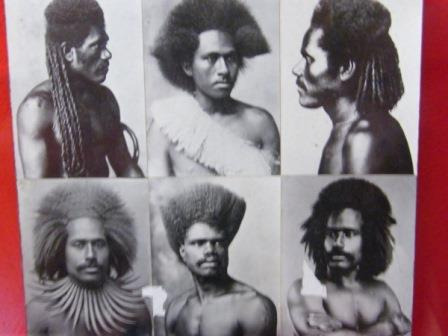
From the Polynesian Cultural Center Blog
Regarding the background:
While in general this is meant to be a non-descript European hall (with the purple meaning to imply this is the hall of somewhere quite important- though again, I think I've been a bit too extravagant in my use of purple), the detailing on the rug's edge and the door is Polynesian-inspired.
The pattern on the rug's edge is inspired by the ahu ahu mataroa pattern, which can represent talent and achievement in sports/athletics, but can also represent a new challenge. I'm intending the latter meaning. The pattern on the door is loosely inspired by the koru pattern, which symbolises new life, growth, strength, and peace. The inclusion of the last is meant as ironic foreshadowing. This pattern has been represented with sharper lines than is usual, and in unusual colours (it is usually shown in green, mimicking the koru spiral of an unfurling silver fern)- the former is a sort of hint towards the challenges these kingdoms will quickly face (though Hawaii will have to wait a little longer than the others), and the latter is a show of merging with European culture- where these colours are generally more valued.
And you've made it! Congrats on reading this whole thing (I am patting you very gently on the head should you be comfortable with this). If you don't mind, reblog/comment this with a smile emoticon (your choice of which) to let me know someone's actually paid attention to all this! It's not something I expect, but it is greatly appreciated.
:)
#hhw day 3#prompt: discovery#hws new zealand#hws hawaii#hws fiji#historical hetalia#hetalia fanart#long ass rambles#colonialism cw
16 notes
·
View notes
Text

btw while i'm sharing random stuff on a queue, here's this bonkers excerpt from promethean sun. there's no analysis i can do of this entire bit that isn't glaringly obvious with knowledge of the Twist of this book, which i've posted extensively about before on this blog, so i'm just leaving it up for public viewership
do wanna highlight the line "linguists within the invasion force were struggling to discern meaning but made assumptions that [...] the people were pleased to have been freed from the yoke of the aliens" for being an incredible microcosm of the entire crusade
also "touched by the primarch's aura, she calmed enough to be taken away" is great as further confirmation that all primarchs are subconscious psykers and their unilateral aura of greatness is artificial and warpcraft-induced because vulkan here is like actively (subconsciously) using it to sedate a person. jesus
#there's a fic i'm writing where a primarch flashbangs someone by turning it all the way up for a split second and then dropping it#novel jpegs#imperialism cw#colonialism cw
7 notes
·
View notes
Text
Been trying to learn more about the Indigenous people of Boriken (Puerto Rico). There’s been a lot of research showing that the Indigenous people of Boriken were not all killed during and immediately after the Spanish invasion.
My grandmother was from Boriken but she moved to Minnesota in the late 1940s after marrying a US Navy pilot. She left Boriken behind. She didn’t teach her children Spanish, though by the time her grandchildren were born, she tried to teach us some. She taught me one Indigenous word: coqui. It means little tree frog. She said that was the word for them because that’s what they sound like when they call in the trees at night.
I don’t know if I have Indigenous heritage. My grandmother always said her parents came from Spain, but genealogical research that a distant relative did and posted on the internet (thank you, thank you, distant relative) shows that’s completely untrue. I don’t blame her for that little, protective untruth. She was the only Boricua she knew in Minnesota -- the loneliness and racism must have been crushing. Her US Navy pilot, the man who swept her off her feet in San Juan, used to sing that awful song from Westside Story to her ... “I want to be in America.” I never met the man but I get furious when I think of him doing that.
I’ve thought about doing DNA testing, but what would that even matter or show at the end of the day? Plus, the genocide of the Indigenous people means that many, many men were killed. So most of what has been passed down is mitochondrial DNA. That means that I could have Indigenous ancestors, but unless they are related to me through a maternal line, their DNA may not live on in me.
And then there are the privacy issues inherent in DNA testing. What am I going to say? Sorry to any relatives who might be wanted for crimes.... I was dealing with some identity issues....
The distant relative who put together so much family history on the internet was able to find ancestors who came over from Europe. They also found ancestors in little towns in Boriken, people born in those towns who showed up on censuses but whose parents are a mystery to us. Who were those people? I don’t know. I barely know who my grandma was given her need to shield us from the heritage that marked us as “other.” She passed away when I was 14. We fought when I was a kid over my desire to be vegetarian. And I think she figured out that I was queer and didn’t really approve. But I do miss her.
What I do know is that the legacy of Boricua resistance lives on in me. Learning about the Young Lords and the Rainbow Coalition has been a constant source of inspiration for me.
Obviously, this doesn’t even go into the long history of African peoples in Boriken due to the trans Atlantic slave trade. I can’t claim that history as mine, either, but it is tied inextricably to the history of Boriken.
22 notes
·
View notes
Text
In Progress fanfic for fallout new Vegas between Ulysses and my courier, Victoria (goes by Vic).
Vic sat down on a rock beside Ulysses with a sigh. The camp had grown since last she saw him. Now there was a small campfire and a makeshift tent overlooking the expanses. The man she had come to see sat stoically but she could sense a weariness to him she hadn't seen before. Was he letting his guard down? Vic sat and fidgeted for a few minutes, her mind racing and her heart pounding. She couldn't hide it even if she wanted to. No, Ulysses deserves to see her as she truly is.
"Courier. Do you intend to stay long?"
"Am I welcome to?"
"You have more right to be here than I."
A few minutes passed in silence, a few marked men walked the streets of Hopeville below. Whether they noticed the two couriers was hard to say. Then Vic turned to look at Ulysses.
"I know this probably means very little coming from me but I feel you deserve to know that I truly am sorry. You are right to blame me. I was careless and abandoned my home--our home. It was that carelessness that took something special from you. I don't expect to be forgiven but I needed to let you know that."
What seemed like an eternity passed. Oh god had she insulted him? Had she become just as mocking as the White Legs? Oh god oh god-
"Thank you, Courier. Far too many people in this world shirk their responsibilities, turn their lives into a meaningless array of actions and words until demise. You bear the weight of your actions like a cross from Caesar and yet you do it with a grace I've seen in few women and fewer men."
Vic stared with mouth agape. He....respected her? After all she'd done? Just a few words and that's it??
"You seem surprised, Victoria. Why?"
"Well I.... I don't know what to say."
"Then let the silence speak for you."
Almost half an hour passed. The two sat looking on into the sands thinking. It felt necessary.
"Was speaking with me your only intention for coming here, or is there another purpose in your step?"
"Well I've been doing a lot of thinking and I think you're right-this *is* my home and I have a responsibility to tend to it, even in this state."
"You intend to make up for your actions by punishing yourself?" Ulysses laughed, something Vic had never heard before. "Perhaps I haven't been the best influence on you then. Your actions are history and no punishment will remedy that."
"I'm sorry I didn't mean to-"
"I'm not finished, Victoria. While your past is unchangable, your future is unwritten. Don't throw it away like I do."
"I......I guess you're right as usual. Still, I feel the need to be here. Even if I don't make it my home I'm going to visit more often so you'd better get used to me". Vic laughed nervously.
"I....I think I might enjoy that. It's hard to spend so long obsessing over someone without growing a bit...fond."
What?!?! Did he actually just say that? Fond?? After everything? Respect was hard enough to believe but fondness? Had the radiation in the Divide screwed with his head?
"I can tell you're surprised again, courier. I suppose that's understandable given everything I've done."
Everything he's done? Even if he did go through with his plan it wouldn't've hurt nearly as many people as the victims of The Divide (both the original inhabitants and the marked men).
"Even if you had gone through with it, it's nothing like what I did."
Ulysses chuckled to himself again. She really did learn, maybe too well.
"Can I tell you something?"
"Absolutely."
"Well it's about history-my history to be exact. A part of it I'm not sure you've heard."
Ulysses looked at Vic intently, like an eager student ready to learn.
"Well, my culture has been taken from me too. My father's ancestors, the Acjachemen, were colonized and assimilated. We were't allowed to speak our own language or practice our own customs. We were expected to either become like our colonizers or die trying."
"I am truly sorry for your loss, Victoria. I know that loneliness, that gaping hole in your chest of knowing you're missing something but being so far removed that the memory, however tight you hold on, begins to fade."
"It's nice knowing someone who can sympathize. It's...hard to talk about especially because I'm so far removed I almost feel like I don't have the right."
6 notes
·
View notes
Text
Philip Pullman in “His Dark Materials”🤝Hamish Steele in “Dead End: Paranormal Park”
Depicting the Heavenly Host as an Imperialist Colonising Army.
@elphabaforpresidentofgallifrey @uncleasriel @lady-asteria @dachi-chan25 @celticbotanart
#His Dark Materials#Dead End: Paranormal Park#Lyra Belacqua#Lyra Silvertongue#Norma Khan#Will Parry#Barney Guttman#Panjava#Barney x Logs#Pugsley Guttman#Courtney Dead End#Pantalaimon#colonialism cw#Kirjava#Dead End Pael#Fingers Dead End
7 notes
·
View notes
Text
(link to original video)
#zenith.txt#puerto rico#colonisation#colonialism cw#land back#neo colonialism#captions are in the original video
1 note
·
View note
Text
U.S. Free Palestine Protests this Weekend: 2/17 through 2/19


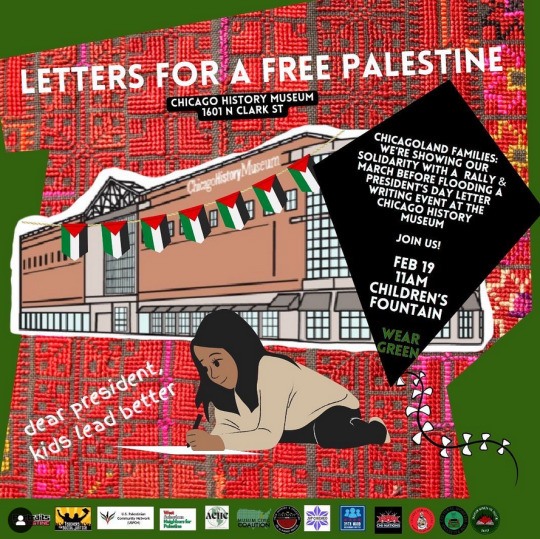






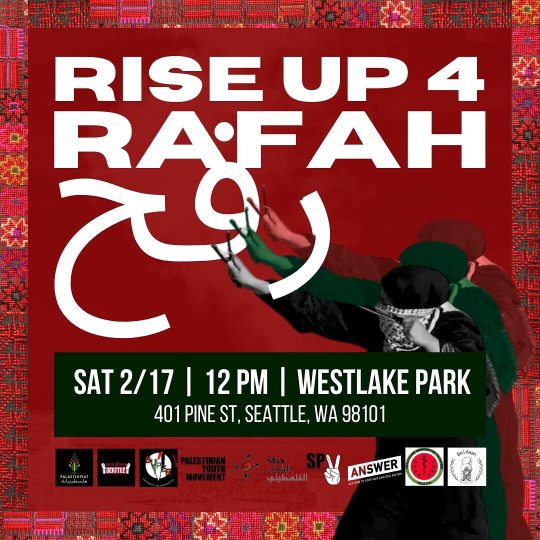
2/17
Denver, Colorado
Indianapolis, Indiana
San Diego, California
Seattle, Washington
2/18
Boone, North Carolina
Milwaukee, Wisconsin
New Orleans, Louisiana
2/19
Aransas Pass, Texas
Chicago, Illinois
Los Angeles, California - Jews for Ceasefire All-Day Shiva
And there are many more! Check out the US Campaign for Palestinian Rights, Code Pink, and your local Palestinian and/or Muslim groups for protests in your area!
#free palestine#palestine#israel#cw genocide#gaza#palestinian genocide#direct action#protests#colonialism#military industrial complex#genocide#free gaza#ceasefire#i stand with palestine#stop the genocide#palestine genocide#anti zionisim#anti war#united states#us politics#joe biden#biden administration#biden is a war criminal#palestine protest#denver#colorado#indiana#indianapolis#san diego#california
4K notes
·
View notes
Text
you know. there are few things that make me sit and think carefully about my instinct to say something would be a Good Fictional Metaphor for a real-world issue like the time i saw the take with my own two eyes that piranesi is a powerful, insightful, accurate metaphor for both colonialism in general and slavery in the US
#piranesi tag#antiblack racism cw#anti-indigenous racism cw#colonialism cw#like i really /hope/ that was just a bad take and not the author's intent because hoooooooly shit that would be. Bad#starting with the fact that piranesi is fucking british. and also his parents migrated from non-US countries of their own will lmao#that does not even begin to scratch the surface of what a balls-out racist trainwreck that would be but like. Uh#amazingly enough marginalized people are capable of experiencing ableism and individualized abuse#that does not reduce their experiences and their personhood down to a one-dimensional symbolic ambassador for the One Group#marginalized people and their stories are not in fact interchangeable with each other and it's dehumanizing to act like they are#wild i know but autistic black people who have been abused via isolation; trauma-bonding; ableism; and gaslighting#and loved their abusers; and had their trust; loyalty; and goodwill taken advantage of--in ways both utilizing and resisted by their autism#and needed outside help care outreach and perspective to solidify their inklings that what's happening to them is fucked and they need out#exist! and deserve representation just actually!#whereas that's uh Not How Fucking Slavery and Colonialism Have Gone Ever Jesus Christ Lmao#anyway. i could go on for a long time about this shit but tl;dr it is one of the most spectacularly awful takes i have ever seen#and this kind of thing is why i have so many posts sitting in my drafts to mull over re: political metaphors i'd approve of at first glance#because dear fucking lord lmao#the salt files
1 note
·
View note
Text
Reading about pastors in Sápmi in the 17th and 18th century is a whole “who is the bigger asshole” contest (People who were willing to travel hundreds of kilometers to tell people that their way of life is wrong, as a way of getting control over an area so its natural resources could be exploited, tend to be assholes? What a surprise.). My current vote goes to Jens Kildal (1683-1767), who is suspected to have married a Sami woman to essentially Wallraff and gain more insight on their culture so he could exterminate it faster. Poor woman.
0 notes
Text
So HK became a real boy (tm) a little before he was taken as a colony so like. Do you guys think Weihaiwei also had a nation-tan or nah. It was a colony but not fully because German influence over Shandong where it was located blah blah and only lasted 40 years and wasn't super developed, but still, if colonies became individuals the moment they were colonized, did all the leased territories in China have nation-tans? Colonies are all taken by force after all, nothing makes British-occupied colonies more legal than Japanese colonies like Mnch.kuo. Did Qingdao, Dalian, and Mnch.kuo all have nation-tans too 🤨
#hetalia#hws china#tia rambles#imperialism cw#colonialism cw#imagine of all the treaty ports and opened cities had a little nation tan pop up tho lol#china the west/japan and their 2093467596894389584 children#PLS REPLY IF U WANT BTW!!! OR SEND AN ASK IDK#Im desperate to not be the only one talking abt this
16 notes
·
View notes
Text
Historical Hetalia Week Day 6: Reform
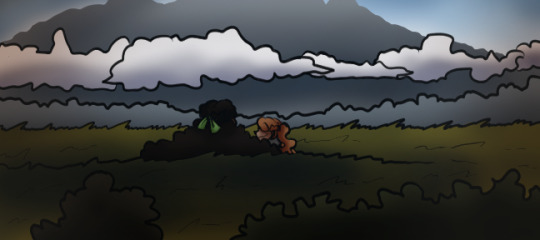
Day 6: 1945 onwards // Reform @historical-hetalia-week
Wow, I have just realised how close to the end of the week it is! I had a few ideas for both the time period and the prompt, however I wasn't certain my time period ideas would be entirely appropriate, given they're connected to recent enough to still be considered sensitive issues, and I can think of many people I know who were personally affected. So far as I can tell, they didn't necessarily go against the rules, but it wasn't something I was quite comfortable with, looking at it from that perspective. So I went with this prompt-based idea, which relates to the Māori Kīngitanga (the "reform" part of the piece)- specifically the period where Kīngi Tāwhiao and followers retreated to what is now known as King Country.
Further explanation under the cut!
Here's a little NZ history lesson, for those not too familiar with the Kīngitanga and the New Zealand Wars (sometimes called the Māori Wars or Land Wars- both names which have been deemed to undermine the significance of this period of history and are being phased out of use):
New Zealand became a colony of the British Empire due to the signing of the Treaty of Waitangi on the 6th of February 1840, where a gathering of Māori chiefs signed the Treaty offered by representatives of the British Empire. It was clear from the get-go, and to both sides, that the goal of the Treaty was to turn the land of New Zealand into a colony, however the details were... murkier. The English translation and Māori translation of the Treaty disagreed on numerous key points, with the Māori translation generally being more lenient than the English translation. (Here's a really good video series explaining this)
The British saw the English version as more legitimate. The Māori saw the Māori version as moreso- but it's a matter of debate whether the chiefs actually understood the more technical terms of the Treaty, and what they meant. (Some people today make careers out of attempting just that!) All of this lead to gross inequality in the treatment of Māori and European citizens of New Zealand. I'll be brushing over the details of this, but it- as it always is with colonisation- was Bad with a capital B.
Some Māori iwi (tribes), due to feeling keenly underrepresented in their own country, came up with an idea: the Kīngitanga, or Māori King Movement. The goal, in creating a Māori King, was not to undermine the legitimacy of the British Monarchy in New Zealand. Rather, they wanted to engage the Pākehā (European NZers) on equal footing, by creating a leader who could be seen as on equal footing to Queen Victoria. She and her representatives in NZ could rule their people, the Kīngitanga would rule the Māori.
It's important to note that many Māori iwi did not support the Kīngitanga. In fact, its support was largely confined to a region of NZ known as the Waikato, pictured below:
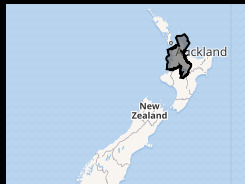
However, it is equally important to note that many Waikato iwi never signed the Treaty of Waitangi, and did not believe they should be under the rule of Queen Victoria. The Kīngitanga was never a push to remove the British from New Zealand, but it was a push to limit European authority over Māori. After all, they hadn't done a stellar job of ruling the Māori population anyway.
Regardless of that, and regardless of any Māori attempts to communicate the true purpose of the Kīngitanga, once a king was declared, you can imagine what the British thought of the native people of their colony declaring a king.
The NZ Wars had already been going for roughly a decade at this point. Across the country, various Māori had begun fighting back against unfair colonial rule, the first war breaking out only 5 years after the Treaty was signed. These wars were not co-ordinated across regions, breaking out independently of each other. They would continue until the early 1870s. However, it would only be in 1863 that they reached the Waikato.
These wars, of course, are horrifically complicated, and I'm unable to fully explain all that caused them here. However, the Kīngitanga, along with war breaking out in neighbouring Taranaki, would lead to the NZ Governor at the time (Governor George Grey) issuing an ultimatum to the Waikato iwi, demanding they pledge their allegiance to Queen Victoria. Before this letter could even be received, British forces would cross into Kīngitanga territory, and begin the Invasion of the Waikato.
This is considered one of the most significant conflicts of the New Zealand Wars, and the Kīngitanga's defeat is what lead its supporters to retreat into the harsh land now known as King Country. Their retreat lasted from 1864 to 1881, following a number of years of negotiation, which began around 1878.
This piece takes place sometime in the middle of that period, and shows Tangata Whenua (explained in this post) and a young New Zealand gazing out at Mt Taranaki. I don't believe New Zealand would have been involved in the retreat to King Country- however, perhaps negotiations lead to an opportunity for reconciliation. I imagine the sisters have quite complicated feelings regarding each other at this point in time (and for forever), but are still able to share quiet moments in each other's company. Having grown up in England's household, New Zealand is likely mystified by her older sister, and curious to know her- while Tangata Whenua has been deeply hurt by what Europeans have done to her people, but recognises that New Zealand is a child guided by those who have raised her.
Though it's difficult to see, NZ is wearing this cloak from the book "Dressed: Fashionable Dress in Aotearoa New Zealand 1840 to 1910" by Claire Regnault, which I absolutely adore:
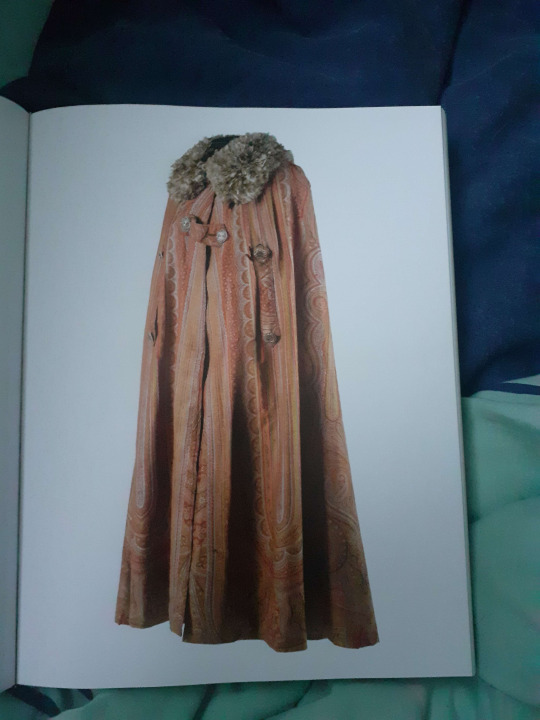
And the background reference I used was this image:
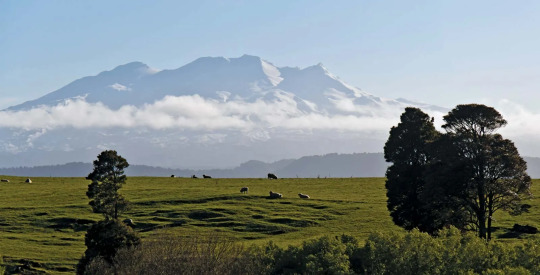
It was taken in King Country, and features Mt Taranaki in the background!
Thanks for reading this far! I hope you were interested in the NZ history context- there's a common belief in this country that we have nothing of note in our past, and that hurts my soul! If you've read this far, comment/reblog with a 💪 to brighten my day a little :)
#hhw day 6#prompt: reform#hws new zealand#historical hetalia#hetalia fanart#war cw#colonialism cw#long ass rambles
7 notes
·
View notes